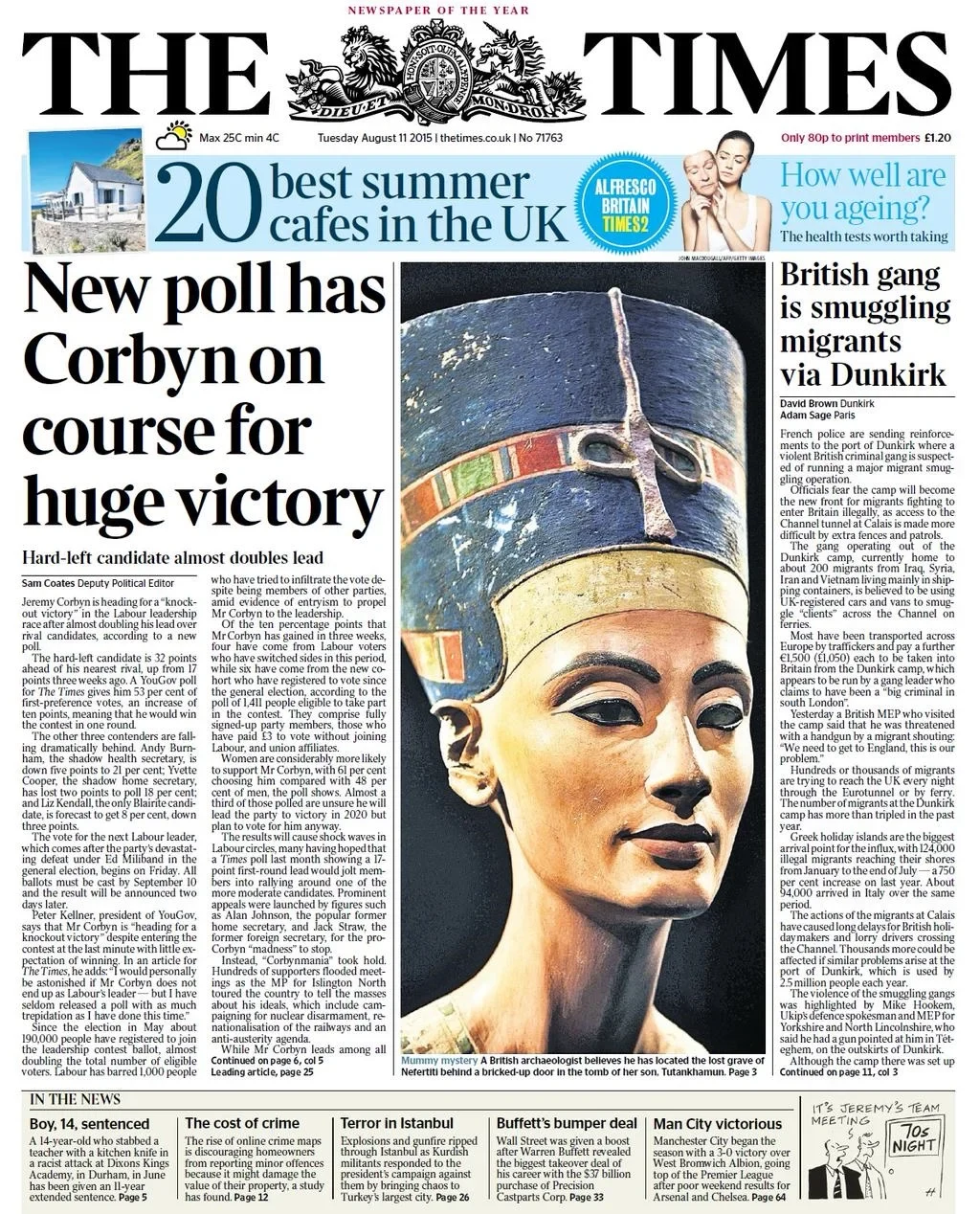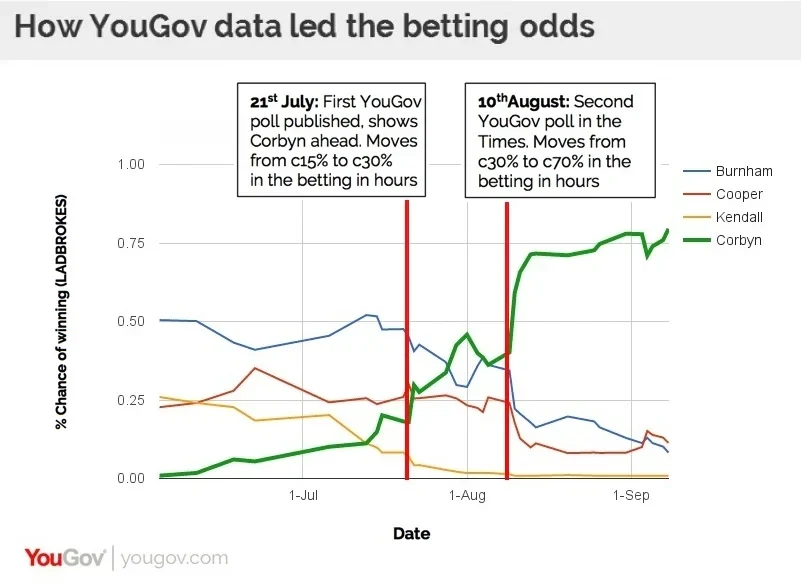The betting markets simply followed YouGov research – without it Corbyn might still be expected to come third
The presumption that Jeremy Corbyn was set to win this Labour leadership contest – the story that has dominated this summer, and the campaign – was based on only one piece of hard evidence: YouGov data. To accurately interview a representative sample of such a tiny fraction of the population is difficult enough, but add in the rapidly changing makeup of the Labour party electorate and the different types of votes and you have a challenge that most research organisations deemed too great. No other company dared to attempt such a difficult task - only YouGov.

We did it because we are scientists with a commitment to accuracy and using the latest technology to understand what is really happening in the world. Because of our unique methods we have the speed to deliver that insight while it’s still useful for decision-making.
On 21st July we reported that Jeremy Corbyn had taken a sensational early lead and was standing at 43% of first preference voting; come the 10th of August and our final published poll (just before voting commenced – we don’t publish polls after voting has started in elections), the Times front page ran ‘New poll has Corbyn on course for huge victory’ and the world was acquainted for the first time with the idea that today’s events might actually happen. We showed a upward surge in support for Corbyn, with him at that point standing to win 53% in the first round, which we revised up to 57% once the composition of the selectorate had been confirmed by the Labour Party.
In the week that followed that story, over 150,000 additional people joined the Labour party electorate, and from the final result (Jeremy Corbyn won 59.5%) it is clear that those people were even more strongly Corbyn supporters.
You sometimes hear the claim that for an accurate prediction, follow the betting odds. “That’s where people are putting their money where their mouth is,” people say. As the below chart from Ladbrokes shows beyond doubt, this is nonsense: the betting odds are simply a reflection of the mainstream expectation – and the evidence that sets those expectations is the polling evidence, in this case only provided by YouGov.
Before the first published YouGov poll, on July 21st, Jeremy Corbyn was still in THIRD place in the betting with odds of roughly 4/1. Within hours of that data being published in the Times, the betting odds had slashed to nearer 3/1. The YouGov poll on August 10th moved Corbyn from a c30% chance of winning to a c70% chance of winning within a few hours.

Pollsters have come in for a lot of criticism since the general election, some people even calling for polls to be banned. This leadership election, however, has shown how dangerous this can be; most campaigns have leaked ‘internal polling’ or ‘canvas data’ showing eerily favourable results for their candidate. Without YouGov’s polling, showing the true nature of the race, the public would have been left simply with nuggets of spin.
For many people, it naturally seems counter-intuitive that by interviewing one- or two- thousand people you can claim you know what the whole country thinks. But here’s the thing: when undertaken scientifically by expert organisations such as YouGov, it works. It is the best – indeed the only – method of getting a measure of what voters as a whole are actually thinking.
At the general election in May, YouGov polling correctly forecast the stories of the unprecedented Labour wipeout in Scotland and the collapse of the Lib Dems, but underestimated the Tory vote share by about 3% and overestimated the Labour vote share by about 3%. It meant that we got the main story wrong, and we’re conducting a detailed review of why this happened and will make corrections accordingly. But we hope that today’s result will help to put to bed the idea that ‘polling is broken’: today’s incredible victory by Jeremy Corbyn was only foreseen thanks to YouGov’s methods, which have been proven time and time again.









